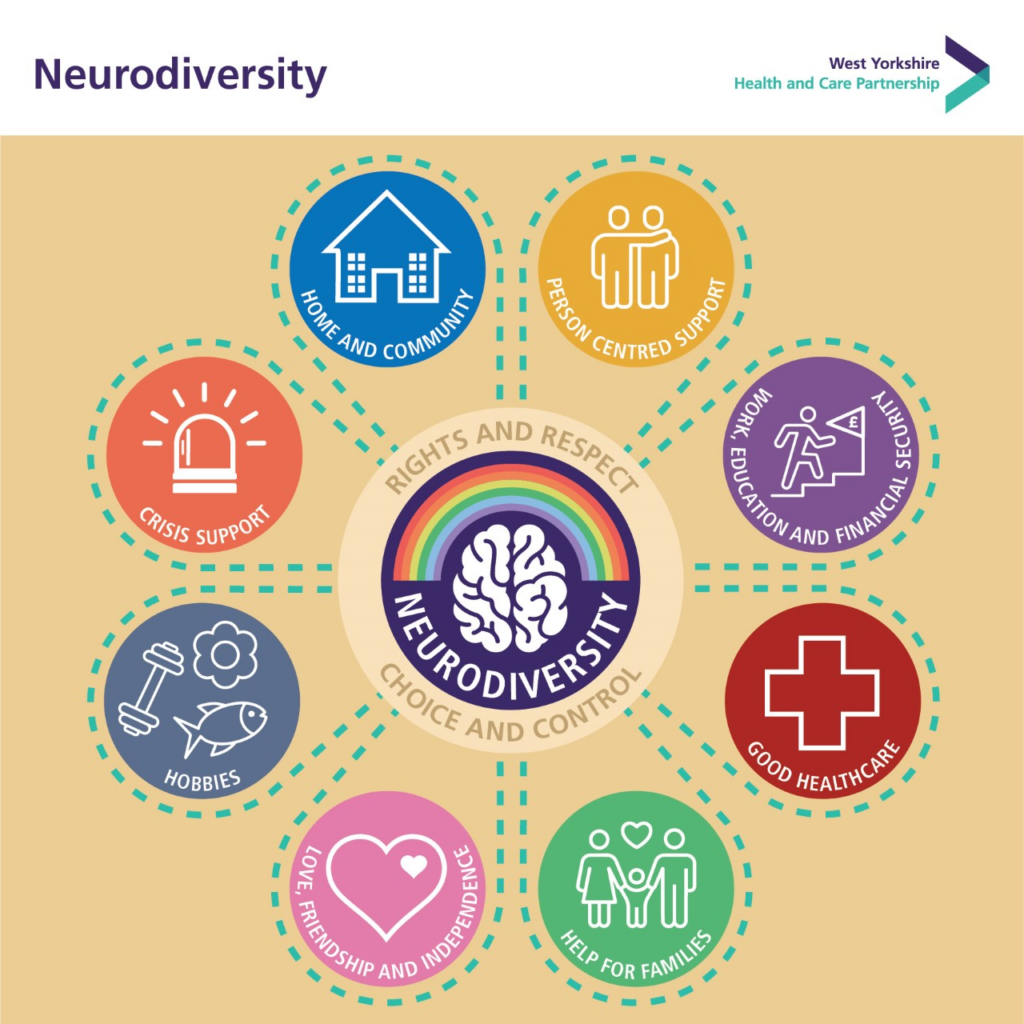
People with lived experience of autism and Attention deficit hyperactivity disorder (ADHD) have taken part in a West Yorkshire-wide project which aimed to explore how to improve services in the current healthcare system and their impact on individuals and families.
West Yorkshire Health and Care Partnership (WY HCP) carried out an ‘autism and ADHD deep dive’ to better understand the experience of users and families of the autism and ADHD services, map the current provision and identify any gaps or issues in order to improve how the system works.
It comes at a time of unprecedented demand for autism and ADHD assessments.
The ‘deep dive’ report cites NHS data which shows that between April 2021 and March 2022, the number of patients with an open referral for ‘suspected autism’ increased by 40%, from over 74,000 to just over 103,000 across England, with the majority of these waiting longer than three months to be seen.
In West Yorkshire, 12,741 autism and ADHD referrals were accepted in 2021-2022 for adults and children and young people.
Comparing the same six-month period in 2020/2021 to 2021/2022, data showed an 83% increase in referrals accepted.
And figures show the demand has continued to increase, with 140,000 people nationally waiting for an autism assessment in December 2022.
It is estimated that around one in seven people are neurodivergent – which means they behave, think, process and interpret information in ways that differ to most other people.
West Yorkshire Health and Care Partnership aims to achieve a 10% reduction in the gap in life expectancy between autistic/ADHD people, mental ill-health and learning disabilities and the general population – an ambition which will make life better for more than 200,000 people living in West Yorkshire.
The ‘deep dive’ work aims to make best use of the Partnership’s expertise to improve services and shape the wider determinants of health, particularly addressing the social inequalities faced by neurodivergent people.
Its report said:
As a system we need to be able to adapt and respond to these demands and work together to meet the needs of people regardless of diagnosis, by improving knowledge, training and skills among our workforce.
We also want to use research and expertise in areas where there are higher numbers of people with neurodevelopmental conditions such as eating disorders, mental health admissions for children and young people and risk of suicide.
Ultimately we want all sectors across our Partnership to work together to achieve better outcomes for our neurodivergent population.
West Yorkshire Health and Care Partnership: Neurodiversity Programme All-age Autism and ADHD Deep Dive report
The ‘deep dive’ project saw more than 200 people who use, fund or deliver the services share their views over three days, focusing on the Children and Young People (CYP) neurodevelopmental assessment pathway; the Adult neurodevelopmental assessment pathway and the Right to Choose agenda (that is, the process for patients to exercise their rights in choosing where to go if a referral/assessment is required).
Some of the priorities identified by those who took part included having a ‘navigator’ or keyworker, pre and post support, training packages, a West Yorkshire digital hub, peer support, the importance of being needs-led and to have an ambition of no waiting list.
This work led to a number of key objectives for the Partnership for 2023/2024, listed in the report as being to:
- improve consistency in autism and ADHD services, reduce wait time and barriers to access
- improve the availability of person-centred, needs-led, holistic support
- implement the ‘Right to Choose’ agenda consistently across West Yorkshire.
The report says:
We know that there is much to do across our Partnership to improve the lives of people living in West Yorkshire and we have had lots of engagement, learning and ideas shared with us.
Our objectives for the next year are a result of listening to what people told us were their priorities and what we are able to deliver with our current capacity.
We will continue to work together to address inequalities and barriers, to share learning and good practice and take advantage of new opportunities.
West Yorkshire Health and Care Partnership: Neurodiversity Programme All-age Autism and ADHD Deep Dive report
MindWell recently held a workshop, working with members of Leeds Autism AIM, a service for autistic adults in Leeds, with the aim of better understanding autistic people’s experience of managing their mental health and gather ideas for making MindWell more useful and accessible for autistic people.
The workshop gathered useful feedback including the need for an autism-specific section, video content, mindfulness for autistic people, content to help in moments of need as well as help with decision-making and route-finding.
Plans are in place to follow this up with a survey to gather further feedback but in the meantime, anyone with ideas on what to include on MindWell for autistic people can get in touch via the website.
